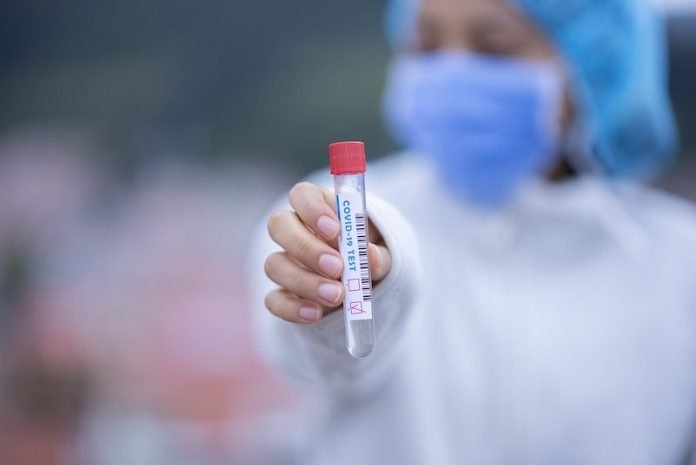
In a new study, researchers confirm the success of a new COVID-19 pooling test that identifies all positive people, including asymptomatic carriers, in a single round of testing.
The test is called P-BEST, an algorithmic method for pooling-based efficient SARS-CoV-2 testing.
The research was conducted by a team at Ben-Gurion University of the Negev (BGU) and elsewhere.
Approximately 10 to 30% of COVID-19-infected patients are asymptomatic and strong viral spread can occur days before symptom onset.
Until there is a vaccine, there will be an urgent need to increase diagnostic testing capabilities to allow for screening of asymptomatic and pre-symptomatic populations.
The team says this new single-stage diagnostic test will help prevent the spread of the disease by identifying these patients sooner and at a lower cost using significantly fewer tests.
In the current study, 384 samples were divided into only 48 pools providing an eightfold increase in testing efficiency and a similar reduction in testing costs for reagents.
Each pool comprises a unique set of 48 samples, where each sample appears in exactly six pools using a specific combinatorial design.
These 48 pools were then tested using a COVID-19 PCR-based diagnostic protocol that included an RNA extraction stage.
After testing each of the 48 pools individually, the researchers successfully identified up to five positive carriers within the 384 samples, without having to test the subjects in that pool.
The team says the P-BEST can be configured on the basis of the carrier rate. The lower the carrier rate, the higher efficiency.
The pooling method has been tested using an advanced liquid-handling robotic system that can perform the task in an hour and can be performed in a typical clinical diagnostic laboratory anywhere in the world.
P-BEST is ideal for conducting carrier screening when infection rates are very low, less than one percent. This will provide big savings in reagents and other diagnostic testing resources while significantly increasing testing capacity.
One author of the study is Prof. Angel Porgador.
The study is published in Science Advances.
Copyright © 2020 Knowridge Science Report. All rights reserved.



